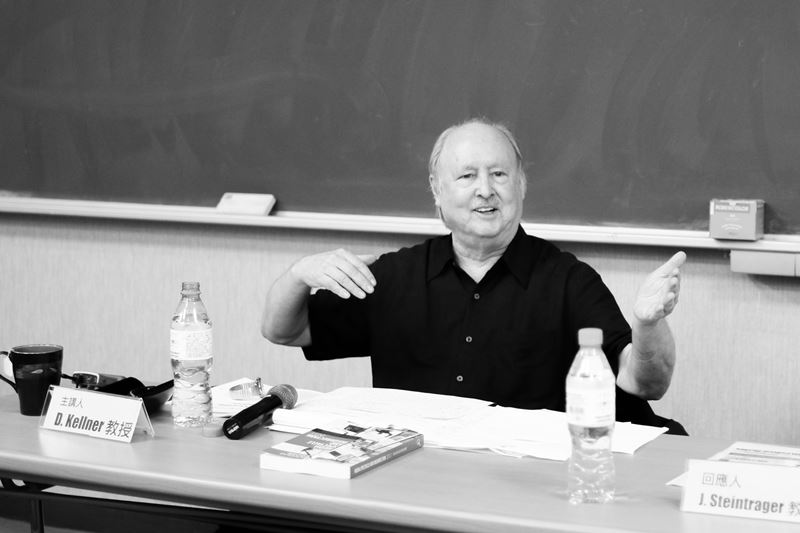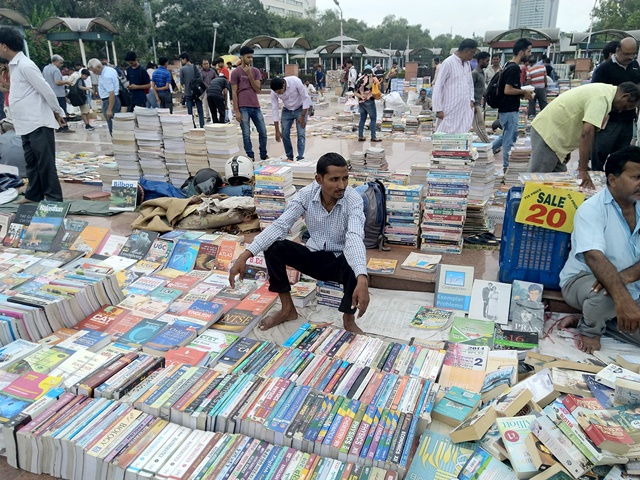EXCERPT
Douglas Kellner—a leading social theorist with great insights into Marxism, critical theory and postmodernity—has articulated the contradictions of the contemporary practice of globalization—particularly, the way the experience of September 11 revealed it. These insights, we believe, continue to be relevant even today.

The terrorist acts on the United States on September 11 and subsequent Terror War dramatically disclose the downsides of globalization, the ways that global flows of technology, goods, information, ideologies and people can have destructive as well as productive effects. The disclosure of powerful anti-Western terrorist networks shows that globalization divides the world as it unifies, that it produces enemies as it incorporates participants. The events disclose explosive contradictions and conflicts at the heart of globalization and that the technologies of information, communication and transportation that facilitate globalization can also be used to undermine and attack it, and generate instruments of destruction as well as production.
The experience of September 11 points to the objective ambiguity of globalization, that positive and negative sides are interconnected, that the institutions of the open society unlock the possibilities of destruction and violence, as well as democracy, for trade, and cultural and social exchange.

Once again, the interconnection and inter-dependency of the networked world was dramatically demonstrated as terrorists from the Middle East brought local grievances from their region to attack key symbols of American power and the very infrastructure of New York. Some saw terrorism as an expression of the ‘dark sides of globalization’, while I would conceive it as part of the objective ambiguity of globalization that simultaneously creates friends and enemies, wealth and poverty, and growing divisions between the ‘haves’ and ‘have nots’.
Yet, the down turning of the global economy, intensification of local and global political conflicts, repression of civil rights and civil liberties , and general increase in fear and anxiety have certainly undermined the naïve optimism of globaphiles who perceived globalization as a purely positive instrument of progress and well-being.
Universally, however, the abhorrent terror acts by the bin Laden network and the violent military response to the Al Queda terrorist acts by the Bush administration may be an anomalous paroxysm whereby a highly regressive premodern Islamic fundamentalism has clashed with an old-fashioned patriarchal and unilateralist Wild West materialism. It could be that such form of terrorism, militarism, and state repression will be superseded by more rational forms of politics that globalize and criminalize terrorism, and that do not sacrifice the benefits of the open society and the economy in the name of security.
In any case, the events of September 11 have promoted a fury of reflection, theoretical debates, and political conflicts and upheaval that put the complex dynamics of globalization at the center of contemporary theory and politics.
Consequently, I want to argue that in order to properly theorize globalization one needs to conceptualize several sets of contradictions generated by globalization’s combination of technological revolution and restructuring of capital, which in turn generate tensions between capitalism and democracy, and ‘haves’ and ‘have nots’. Within the world economy, globalization involves the proliferation of the logic of capital, but also the spread of democracy in information, finance, investing, and the diffusion of technology. Globalization is thus a contradictory amalgam of capitalism and democracy, in which the logic of capital and the market system enter even more arenas of global life, even as democracy spreads and more political regions and spaces of everyday life are being contested by democratic demands and forces. But the overall process is contradictory.
SOURCE: Douglas Kellner, Theorizing Globalization, Critical quest, Delhi, 2012










